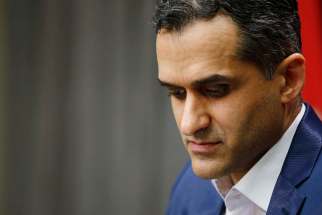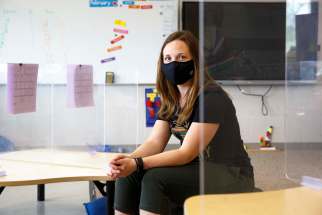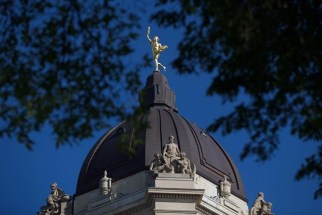‘Alarming’ results as researchers put exhausted educators under microscope
Read this article for free:
or
Already have an account? Log in here »
To continue reading, please subscribe:
Monthly Digital Subscription
$0 for the first 4 weeks*
- Enjoy unlimited reading on winnipegfreepress.com
- Read the E-Edition, our digital replica newspaper
- Access News Break, our award-winning app
- Play interactive puzzles
*No charge for 4 weeks then price increases to the regular rate of $19.00 plus GST every four weeks. Offer available to new and qualified returning subscribers only. Cancel any time.
Monthly Digital Subscription
$4.75/week*
- Enjoy unlimited reading on winnipegfreepress.com
- Read the E-Edition, our digital replica newspaper
- Access News Break, our award-winning app
- Play interactive puzzles
*Billed as $19 plus GST every four weeks. Cancel any time.
To continue reading, please subscribe:
Add Free Press access to your Brandon Sun subscription for only an additional
$1 for the first 4 weeks*
*Your next subscription payment will increase by $1.00 and you will be charged $16.99 plus GST for four weeks. After four weeks, your payment will increase to $23.99 plus GST every four weeks.
Read unlimited articles for free today:
or
Already have an account? Log in here »
Hey there, time traveller!
This article was published 19/05/2021 (1665 days ago), so information in it may no longer be current.
Pandemic pressures have Manitoba teachers exhausted to the point of feeling ineffective and withdrawing from their students at far greater rates than colleagues across the country, a new study suggests.
“They are so overwhelmed right now. It’s not that they don’t care about the kids anymore — it’s overwhelming for them to care as much as they care,” said Laura Sokal, who is leading an ongoing research project on teacher well-being out of the University of Winnipeg.
Over the last year, Sokal and colleagues Lesley Trudel and Jeff Babb have been surveying and analyzing data related to burnout in the profession, as K-12 educators juggle pedagogy, distance-learning pivots, and overseeing public health orders in classrooms.
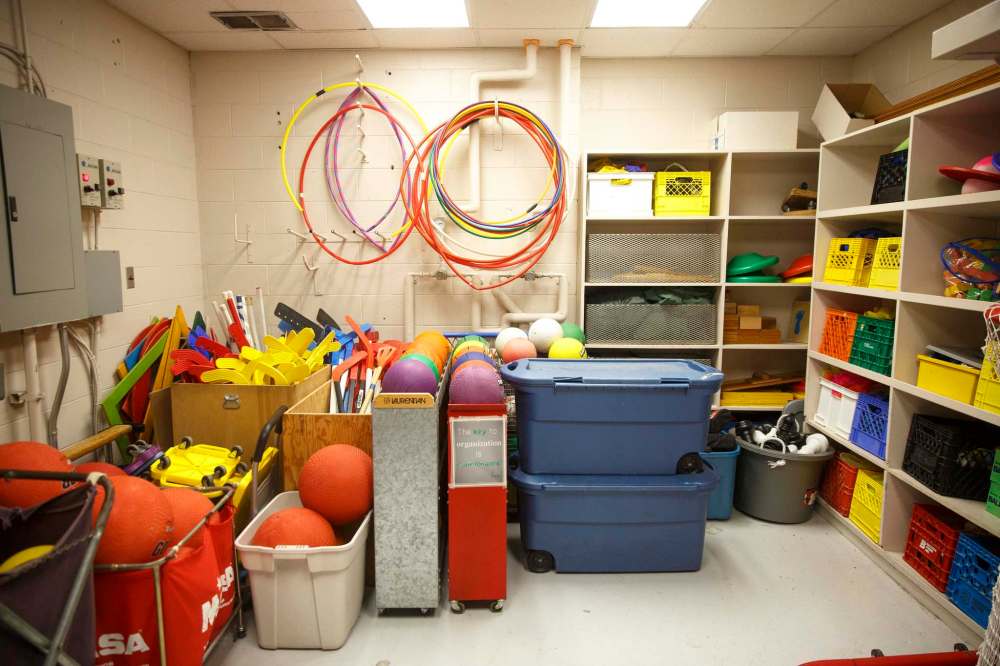
The results of a fall survey of more than 2,200 Canadian teachers, including more than 1,019 educators based in their home province, yielded what Babb called “alarming” results for Manitoba.
The researchers used latent profile analysis to sort each participant into a green, amber or red burnout zone, based on survey responses collected throughout late September and early October 2020.
While 27 per cent of total teachers were placed in the most severe category, almost 46 per cent of Manitoba respondents were in the red zone — meaning they reported high levels of exhaustion and withdrawal from students, as well as significant decreases in classroom effectiveness.
On the opposite end of the spectrum, around 26 per cent of local teachers and 32 per cent of total respondents ended up in the green, which is composed of educators who remain effective.
It’s not that they don’t care about the kids anymore– it’s overwhelming for them to care as much as they care.”
– Researcher Laura Sokal
Coping levels generally reflect whether teachers feel they have adequate resources to meet demands — ranging from time management to technology issues, student family needs to homelife obligations — rather than the number of demands themselves, said Sokal.
Professional learning opportunities, exercise and well-being activities, and support from administrators, colleagues, family and friends are among the resources educators reported accessing to tackle COVID-19-related stresses.
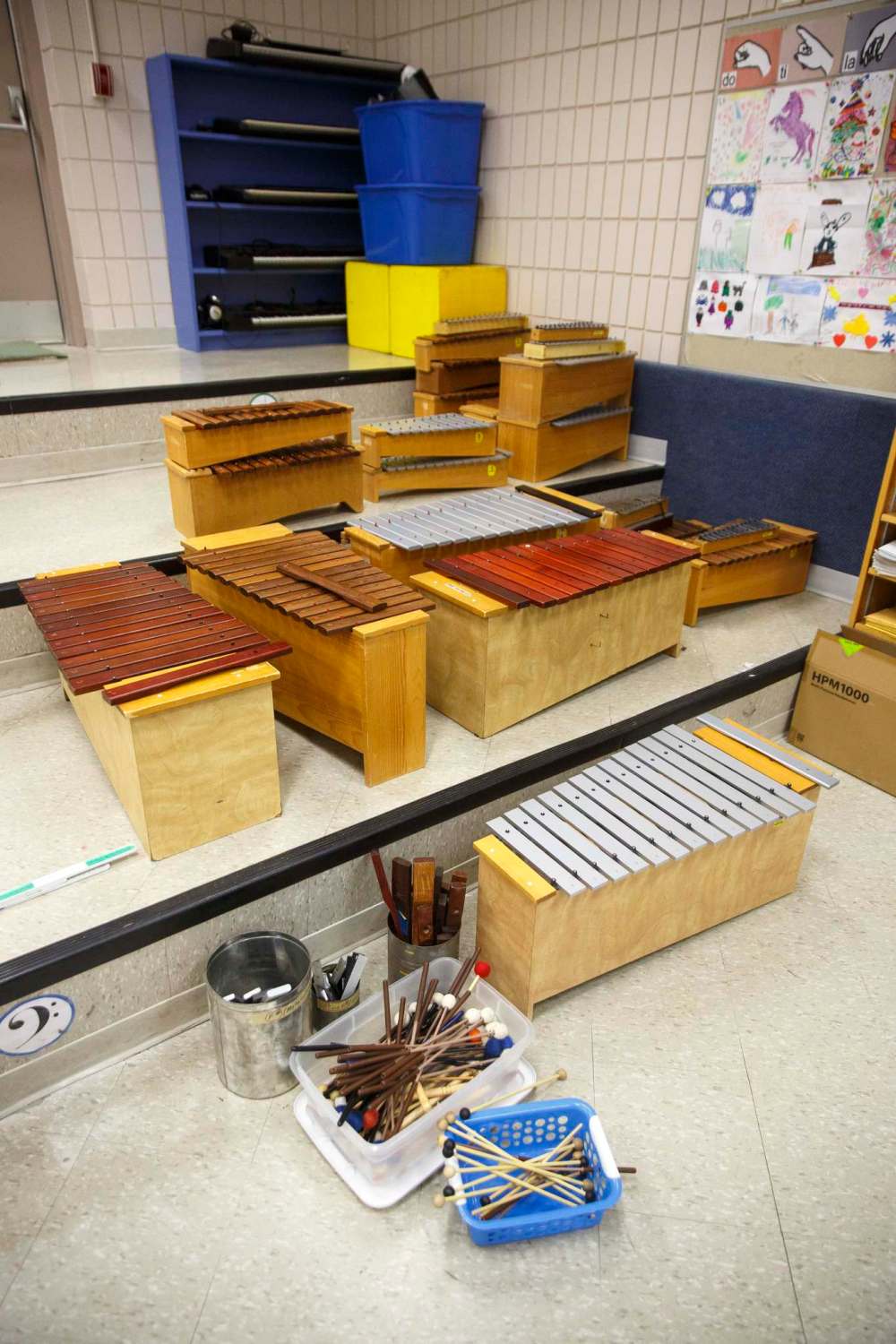
Since undertaking the national survey, the researchers have been conducting interviews with 21 teachers in one Winnipeg school division every two weeks, to chart ebbs and flows of stress.
Combined, their findings suggest the province’s looming overhaul of the education system is adding stress on local teachers, who are already exhausted as they navigate safety concerns and demoralization.
Asked about what would make her job as an elementary school teacher less stressful right now, Jessica Grant responded: “Not having to worry about Bill 64.”
The introduction of education reforms as school staff grapple with all the uncertainties in planning for what’s next in a pandemic only adds to high anxiety levels, said Grant, a grades 1 to 3 teacher at R.F. Morrison School.
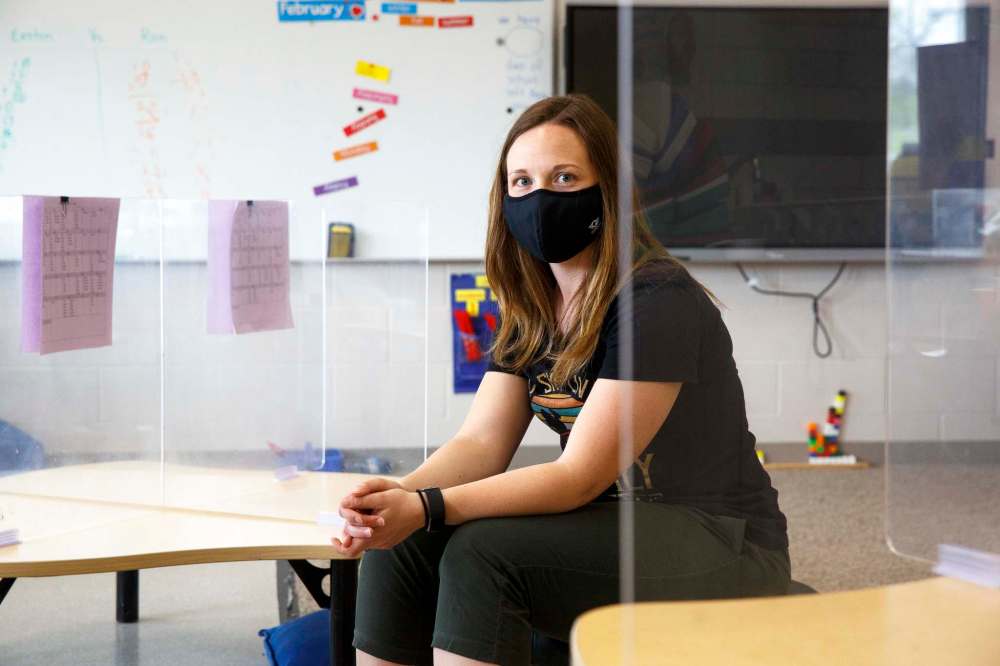
Top of mind for Grant is not school governance structures nor potential learning losses, but rather what impact the “collective trauma” of the pandemic will have on school communities.
“I just hope that (students) come out of this year — and, hopefully, it is just this school year — not losing that sense of safety and belonging at school.”
Before spring break, local teachers taking part in ongoing interviews with the U of W team were settling into routines and feeling energized about the remaining three months of the year, said Trudel, a co-investigator on the project.
Since then, she said, the fact teachers were not prioritized for vaccines, uncertainty around education reforms, and the latest move to remote learning — all part of a “constant cycle” of uncertainty — have affected energy levels.
“I just hope that (students) come out of this year– and, hopefully, it is just this school year — not losing that sense of safety and belonging at school.”
– R.F. Morrison School teacher Jessica Grant
The researchers have provided their findings to the province, as well as advice any reforms to education are put on hold until teachers and students can recover from the chaotic 2020-21 school year.
“Don’t ask them to run a marathon when they’ve just finished one — let them recover and then, we’ll move forward. This is a recipe for disaster, to just keep loading it on teachers right now,” Sokal said.
The research team’s national study findings are expected to be published in the Canadian Journal of Education next year.
maggie.macintosh@freepress.mb.ca
Twitter: @macintoshmaggie

Maggie Macintosh reports on education for the Winnipeg Free Press. Funding for the Free Press education reporter comes from the Government of Canada through the Local Journalism Initiative.
Our newsroom depends on a growing audience of readers to power our journalism. If you are not a paid reader, please consider becoming a subscriber.
Our newsroom depends on its audience of readers to power our journalism. Thank you for your support.


